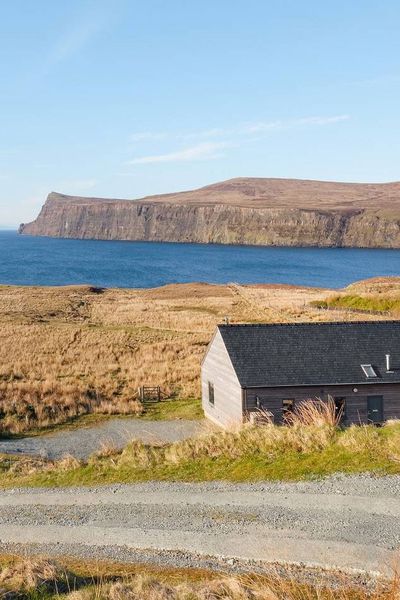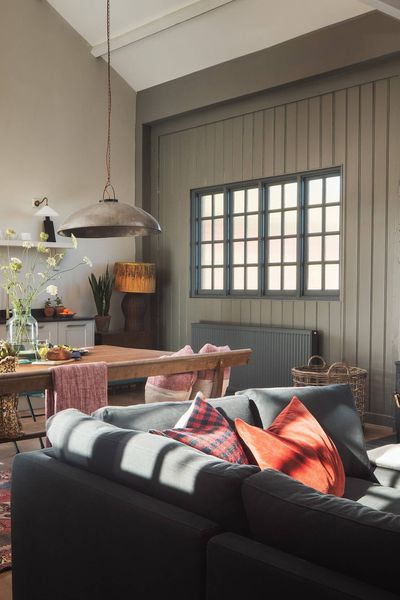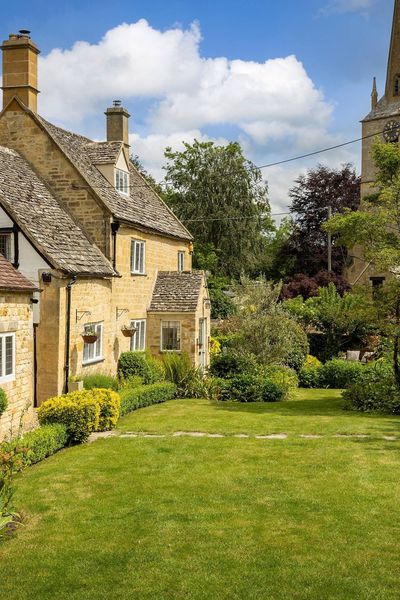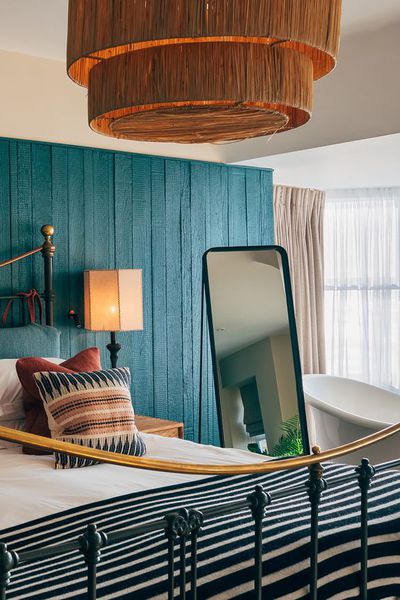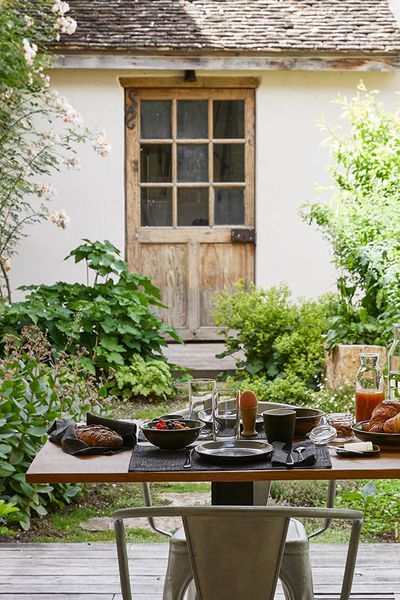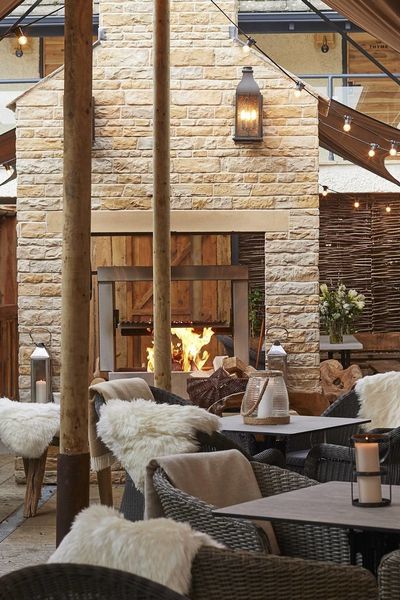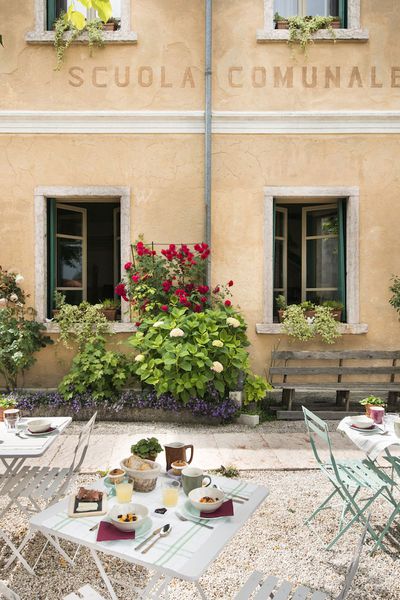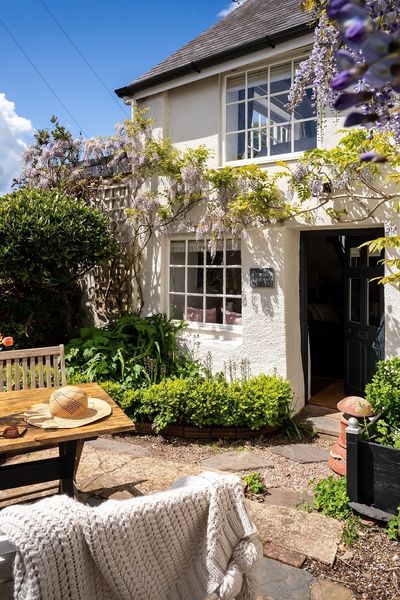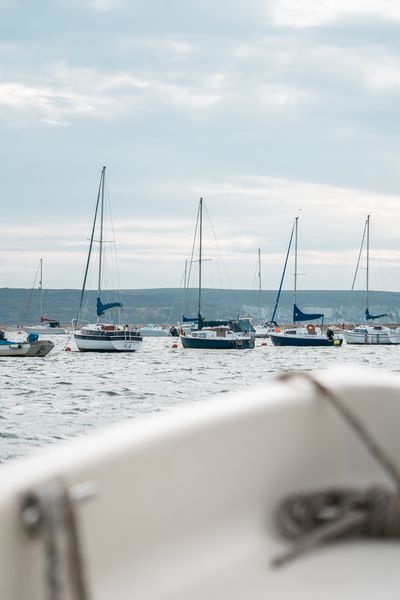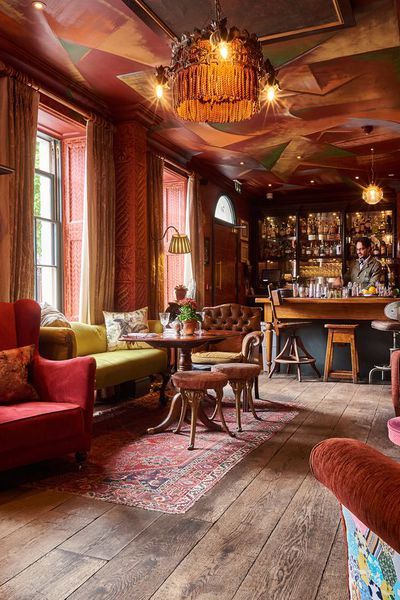
Just don’t say “eco”: Mazzard Farm’s stealthy sustainability
Sawday's Expert
5 min read
The beautiful collection of cottages at Mazzard Farm is currently sweeping the awards for Ethical and Sustainable Tourism thanks to its incredible, innovative approach. At first glance it doesn’t look like a beacon of sustainability but, as we found out from a chat with owner Ruud Jansen Venneboer, that’s exactly the point. He talked about the challenges and realities of running an environmentally positive business, Mazzard Farm’s real USP and why he never used the word “eco”.
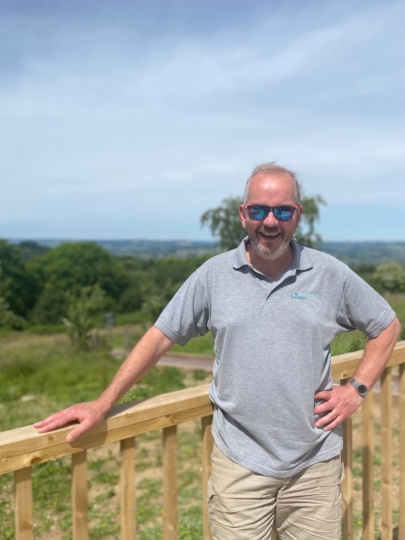 Let’s get right to it, what’s wrong with the word eco?
Let’s get right to it, what’s wrong with the word eco?
For a lot of people, the word has some negative connotations. They think it means basic, simple, and that they’ll have to compromise on their holiday. People who live very carefully when it comes to their environmental impact can feel like their time away should be a holiday from all that. They feel like they can bend the rules a little. We offer them a place where they can have the holiday they want without having to compromise on quality or their principles.
So, it’s a huge thing for guests?
For some of them, yes. But to be honest a lot of people don’t care that much. If you ask people what criteria they pick their holidays on, sustainability comes pretty low, although I sense it’s getting more important to a greater number of people. If people aren’t interested though, I am not under any illusion that we can truly convince them, we’re about leading by example. We hope that everyone loves staying here and that maybe people take away ideas or a bit of inspiration for their own lives. If we can convince someone that doing their bit isn’t really that hard (or at least that buying bottled water is terrible!) we might have planted the seed of something.
Your sustainable practices weren’t financially motivated then?
Not at all. For the first… maybe ten years, the best I can say is that it was cost neutral. We brought down our bills and got some good PR, but really, it was a labour of love. With the rise in energy prices and the increasing focus on the impact of travel, we’re starting to see what you might call a financial benefit, but it’s always been principle first, business second.
If you can sum it up, what have you actually done at Mazzard Farm?
It would take a long time to tell you all of it! Recently we’ve been working on power usage, for obvious reasons. We generate 50% of our own energy through solar panels and biomass heating and we’re installing “power walls” which should raise that percentage significantly by enabling us to store any excess. All our appliances are A/A+ energy rated, and we’ve replaced over 100 20w halogen light bulbs with 6W LEDs, meaning our guests only use around 2kwh per person per day, on average, which we’re told is a benchmark low. We repair and mend anything we can, to minimise the enormous impact of adding another product’s lifecycle impact and we’ve been doing a lot with the land to diversify and let nature “perform” at its best. We’re also looking for a beekeeper.
Do you think it should become industry standard to work the way you do?
It may be hard for every business to do everything what we’ve done, I acknowledge that, but what currently passes for “sustainable business” in travel can be bit of a joke at times. You see places shouting about their towel policy and encouraging recycling as if they’re leading the charge, when those are the sort of things that are the bare minimum. Don’t get me started on “offsetting” either, which only treats the symptoms not the cause, by allowing companies to carry on having a negative impact and essentially pay off nature. What more people could do is tie their business into their local community more. That’s a huge part of what we do here.
Is local more important than sustainable then?
They’re so closely linked that I wouldn’t call one more important than the other. If you shop locally and encourage guests to do the same, you’ve driven down food miles and so on, but you’re also supporting a local community. If there are people making and growing things in the area, then everyone has a chance to avoid globally fabricated and distributed products, so it has a knock-on effect. Of every pound spent in a big supermarket, they say 20p stays local, almost entirely through staff wages. If you spend that pound in a local shop, it gets used to pay other local suppliers – the value to the community is multiplied, not diminished. And those are just the tangible benefits. You can’t put a price on having a network, a real community that people feel a part of and that guests can feel a part of during their stay.
How do you encourage that?
We have a lot of documentation that we send over to guests before they arrive, telling them what’s available and where they can get it. We know we have to make it as easy as possible for people and some will still get a big delivery from a supermarket for their basics, which is fine, but maybe they’ll pick up some great meat, or honey or bread locally, and the more we can do to make that part of their stay, the better.
So, what’s the main message you’re trying to get across?
There isn’t one. Well, perhaps there is, but it’s subtle. We want people to love staying here, that’s the first thing. We want them to find it wonderfully relaxing, exciting, whatever they need from a holiday. The “message”, if you can call it that, is all around them – it is possible to travel responsibly, in terms of both environmental and community impact, without having to feel “eco” and live in huts eating root vegetables. When guests tell their friends about Mazzard Farm, we hope they say how wonderful it was, then talk about the sustainability. Not the other way round.
Want more travel inspiration? Get our email updates direct to your inbox >
Sign up >Share this article:
You might also like
Little Green Bag – Our B Corp packing list

Christopher Wilson-Elmes
Sawday's Expert
5 min read
The Lakes without brakes: How to visit England’s most popular National Park, car-free

Tessa Holmes
Sawday's Expert
5 min read
What we’ve learnt as part of our overtourism campaign

Tessa Holmes
Sawday's Expert
5 min read
